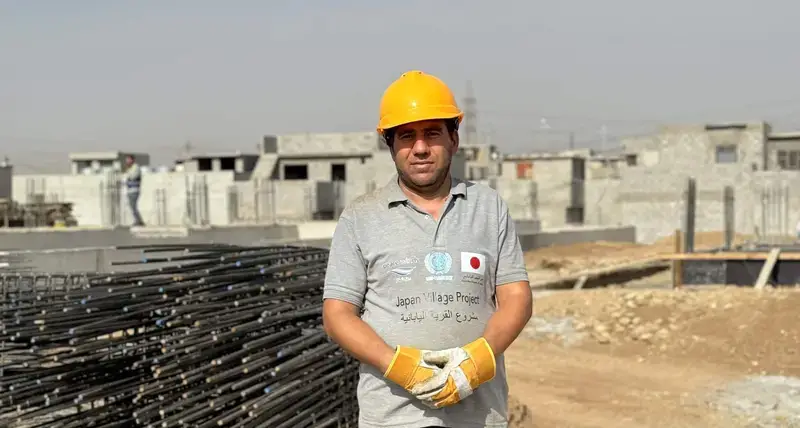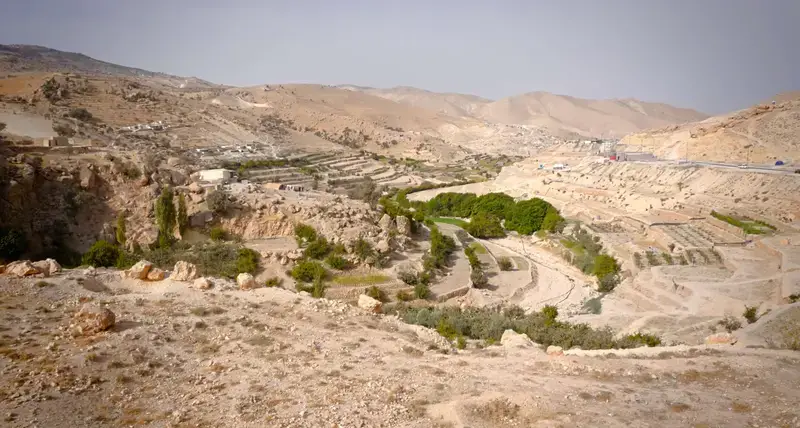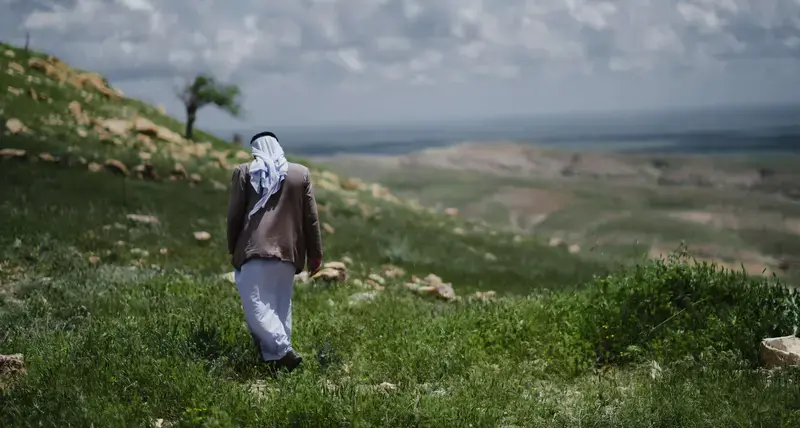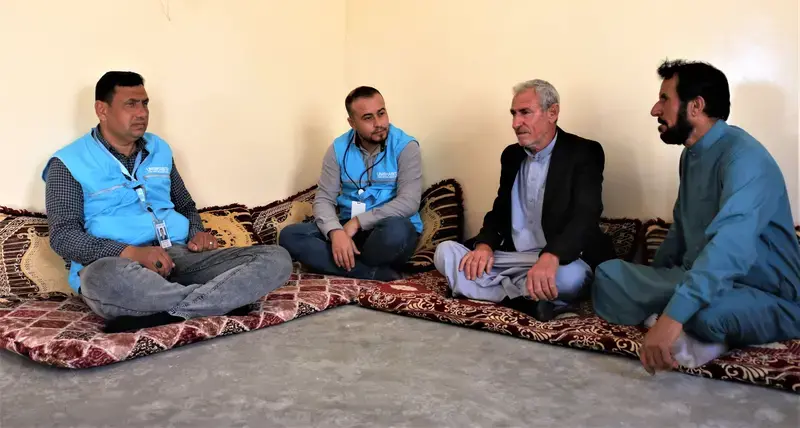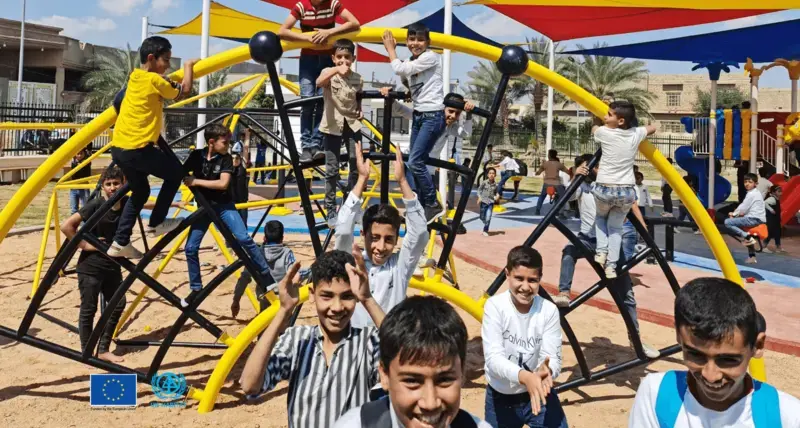UN-Habitat has been active in Iraq since 1996 under the Oil for Food Programme. After 2003, its focus shifted to early recovery efforts, particularly supporting internally displaced persons through housing and reconstruction solutions.
As of 2025, the programme includes a main office in Baghdad and field offices in Erbil, Basra, and Sinjar, coordinating operations across northern, central, and southern Iraq. This ensures seamless collaboration with local authorities for effective project implementation and oversight.
UN-Habitat Iraq supports the Government of Iraq at all levels, promoting sustainable urban development, reducing spatial inequality, sharing knowledge, improving governance, and ensuring effective urban crisis prevention and response, while enabling prosperity and a better urban future.
Impact
Urban numbers
Challenges
Iraq's urban development faces challenges like rapid urbanization, strained infrastructure, and informal settlements. The country is in a trend of development and durable solutions, and UN-Habitat ensures it is well-assisted and aligned with global standards of sustainable urban development.
Urban governance struggles with resource allocation, leading to spatial inequalities. Climate change exacerbates vulnerabilities, causing water scarcity and extreme weather. Internally displaced persons add pressure on services. Public health risks arise from poor waste management and pollution.
Youth face high unemployment, needing targeted interventions for economic opportunities.
Addressing these issues requires sustainable, inclusive strategies for resilient urban environments.
UN-Habitat plays a crucial role in Iraq by providing housing and reconstruction solutions for internally displaced persons (IDPs), supporting urban planning, and upgrading informal settlements. Their efforts focus on creating sustainable, resilient, and inclusive urban environments for all residents.
The Housing at the Centre approach is central to UN-Habitat's strategy in Iraq. This approach emphasizes housing as a key driver of urban development, integrating it into national and local urban policies.
By focusing on adequate and affordable housing, UN-Habitat aims to improve living conditions, reduce inequalities, and promote social cohesion.
This holistic framework ensures that housing development is aligned with broader socio-economic goals, fostering sustainable and inclusive growth.
Country Beneficiaries
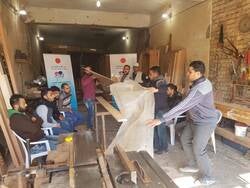
"My father was executed by ISIL and my mother passed away in the camp while we were displaced. I became the breadwinner of the family, and I am happy I participated in UN-Habitat’s vocational training that enabled me to work for rehabilitation of my own house under UN-Habitat’s project. Our family is thankful for the assistance provided by UN-Habitat, they allowed us to return to our home and helped restore the stability of the family."
Mustafa Hadi Ahmed, 30, beneficiary from UN-Habitat’s project titled “Promoting Urban Recovery in Newly Liberated Areas in Iraq” in Ramadi, Anbar Governorate
Donors and partners
Since the beginning of operations in Iraq, UN-Habitat has worked with international donors and has established a strong network of international and national partners.
UN-Habitat works closely with the national and local government counterparts such as the Prime Minister’s Office, Council of Ministers, Ministry of Planning, the Ministry of Construction, Housing, Municipalities and Public Works, Ministry of Justice, and local authorities such as Municipalities and technical Directorates, in policy and project planning, development and implementation and on protection of housing, land and property rights.
Within the two largest ongoing programmes in Iraq, funded by the European Union, UN-Habitat is partnering with UNDP and national partners to ensure the stability and socio-economic development of the country by enhancing democratic governance at the local level and improving the resilience of host communities, IDPs, returnees and refugees affected by the Syrian crisis and recent conflict.
Through a series of projects funded by the Government of Japan, UN-Habitat is improving the living conditions of the vulnerable IDPs and returnees in the targeted conflict-affected communities and enhancing the self-reliance of the returnees through construction of durable low-cost housing units, rehabilitation of war-damaged houses, vocational training and increased employment opportunities. Rehabilitation of war-damaged houses is done also under the project funded by the Kuwait Relief Society.
UN-Habitat is supported through the Iraq Humanitarian Fund for two projects in Anbar and Dohuk to provide non-food items and shelter support to the most vulnerable identified through a socio-economic survey. This also includes rent relief for a small number of households at risk of eviction.
Residents in Heet, Anbar will benefit from a project funded by Alwaleed Philanthropies focussed on war-damaged shelter rehabilitation, community water network extensions to houses, and rehabilitation to clinics with a focus on water, sanitation, and hygiene as well as COVID-19 prevention and mitigation.
Under the ongoing project “Support to Housing, Land and Property Rights for IDPs in Nineveh,” UN-Habitat Iraq is partnering with Global Land Tool Network, which will provide training on land administration and management databases to local counterparts on Social Tenure Domain Model and legal support and advice on land- and conflict-related issues.
Donors
Donors
Contact
Legacy content
The Republic of Iraq is located in an area with a rich urban legacy. Cities started to appear around the Euphrates and Tigris about 5000 years ago, when fertile land was successfully farmed to create agricultural surplus and became densely populated with human settlements.
UN-Habitat, as the UN programme promoting sustainable urban development, is proud to work within this deeply historic context. However, established in the 1990s during the Oil for Food Programme, the UN-Habitat Iraq programme is today confronted by very real and contemporary challenges that Iraq’s cities are facing.
These challenges can be classified into two categories: on the one hand there are general issues that are connected to the processes of rapid urbanization in a developing country and that can also be observed in other countries of the global periphery. At the same time, Iraq is enmeshed in a severe armed conflict and a big part of its cities and population are facing a fundamental threat to their very existence, represented by the group calling itself Islamic State (Daesh).
As for the general urban issues, Iraq’s cities accommodate more than 70% of the population and they are growing rapidly. Many people, particularly the poor, live in sub-standard housing and informal settlements and suffer from the health impacts of polluted water sources and growing traffic congestion. Women and children, whose focus of living is predominantly the home, experience the reality of poor services and absence of local amenities most acutely.
All of this is worsened by the advances of Daesh and the armed struggle against it, resulting in large numbers of internally displaced Persons (IDPs), destroyed infrastructure, cuts to basic services and disruption of local economies. In order to meet these challenges, UN-Habitat follows a multi-dimensional and coherent approach that is diverse and ranges from urgent tasks such as providing safe basic shelter for IDPs to projects which aim at building the capacities of local and national governments in planning and managing urbanization to more abstract endeavours like researching the dynamics of urbanization and the impacts of armed conflict.
In tackling the aforementioned problems, UN-Habitat is aligned to a global approach and commits itself to mobilizing the Iraqi Government towards the realization of the Sustainable Development Goal 11, “Make cities inclusive, safe, resilient and sustainable,” and its integration into the Habitat III (formally known as the United Nations Conference on Housing and Sustainable Urban Development), to be held in Quito, Ecuador, in October 2016 process.
Despite all the challenges stemming from urbanization, it has to be emphasized strongly that UN-Habitat also sees great opportunities in it. If urbanization is managed in an inclusive and sustainable way, Iraq’s cities can become hubs of economic growth, drivers of development and non-discriminatory homes to its population, providing equal chances for everybody.
Key Partners
IOM, UNDP, UNESCO, UNHCR, UNICEF, UNOCHA, UNOPS, UNFPA, WHO
